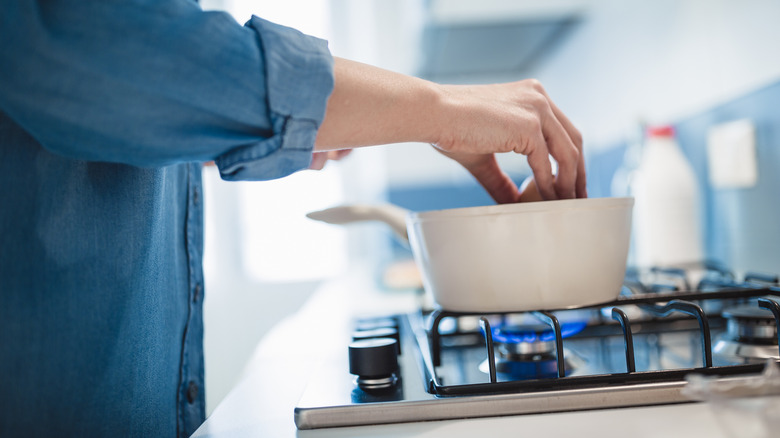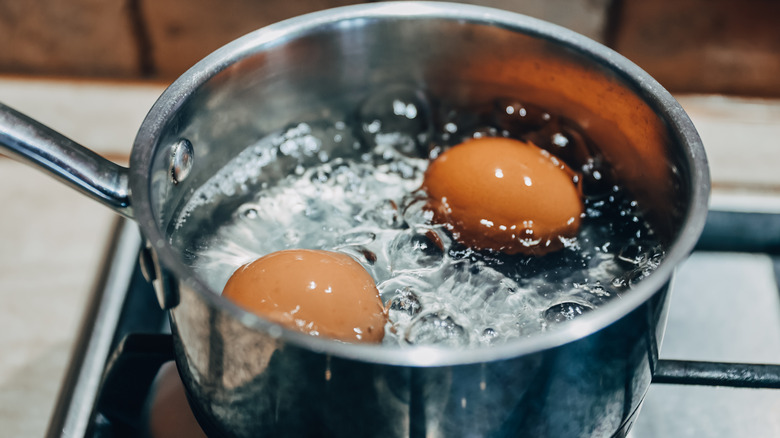The Simple Tip To Meal-Prep Eggs With Your Grains
Meal prepping is a game-changer for anyone looking to save time, reduce stress, and eat healthier throughout the week. The idea is simple: dedicate a few hours to preparing meals for the coming days, and you're set with ready-to-go dishes that just need reheating or batch-cooked ingredients ready to create different meals. However, even with its obvious benefits, meal prepping can sometimes feel daunting. Thankfully, there's a simple trick to turn this time-consuming task into an efficient kitchen session. Smart multitasking. One of the cleverest multitasking tips involves something you might not have considered: cooking eggs alongside your grains. Whether you're boiling corn, brown rice, pasta or potatoes, you can easily throw in a few washed, unpeeled eggs into the same pot.
Cooking eggs with your grains (or any other boilable ingredients) is effective for several reasons. First, it cuts down the need to use multiple pots, which is a win for anyone who dislikes washing dishes. Secondly, it not only saves time but also maximizes the use of resources — like water and energy. And thirdly, it streamlines the cooking process, allowing you to focus on other meal prep tasks or simply enjoy a moment of downtime. This approach is especially useful for those trying to pack more nutrition into their meals without adding extra steps to their cooking routine.
How to cook eggs with your grains
The process of cooking eggs with your grains — or any other boiling dish — is straightforward but requires a bit of timing consideration. The key is to match the cooking time of the eggs with that of the grains or other ingredients. If you're aiming for hard-boiled eggs (they're more versatile and have a longer shelf life than soft-boiled eggs), you'll want them to boil for about 10 minutes. If the grain or other ingredient you're cooking has a similar cook time to the eggs, you can add the eggs to the pot at the same time. For instance, if you're boiling pasta that cooks in about 10-15 minutes, place the eggs in the water when you start. By the time your pasta is done, your eggs should be perfectly hard-boiled.
For ingredients with a longer cook time, like dried beans that need to simmer for a while, you have two options. You can either remove the eggs partway through the cooking process or wait until the last 10 minutes to drop them in. This ensures the eggs are cooked through without overdoing it. Once the eggs are done, use a slotted spoon to fish them out of the pot. Immediately run them under cold water, peel them, and the eggs are ready to be stored in the fridge. With this simple trick, you get to prepare an additional food item during your meal-prep routine, all with minimal extra effort.

